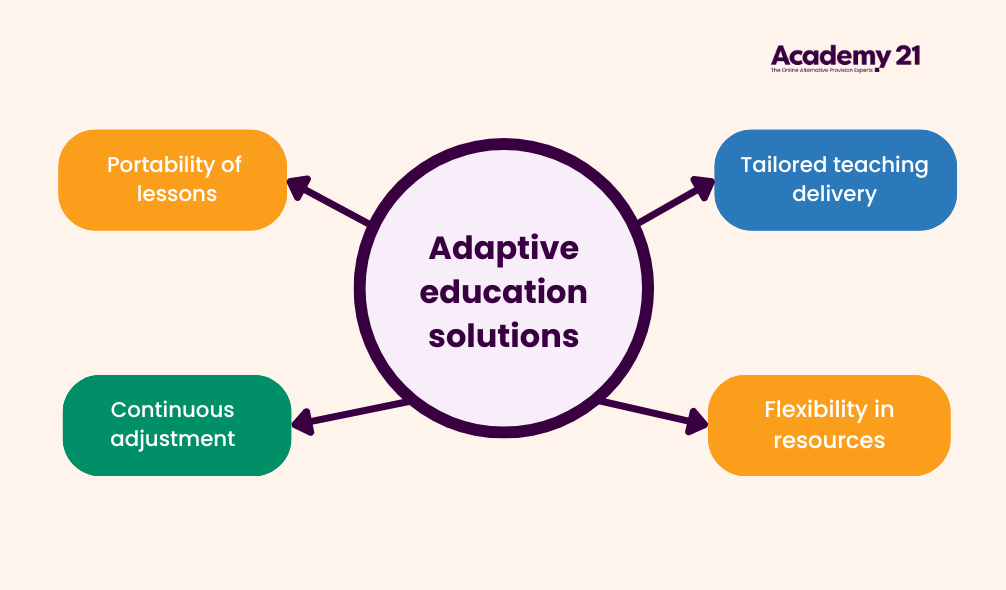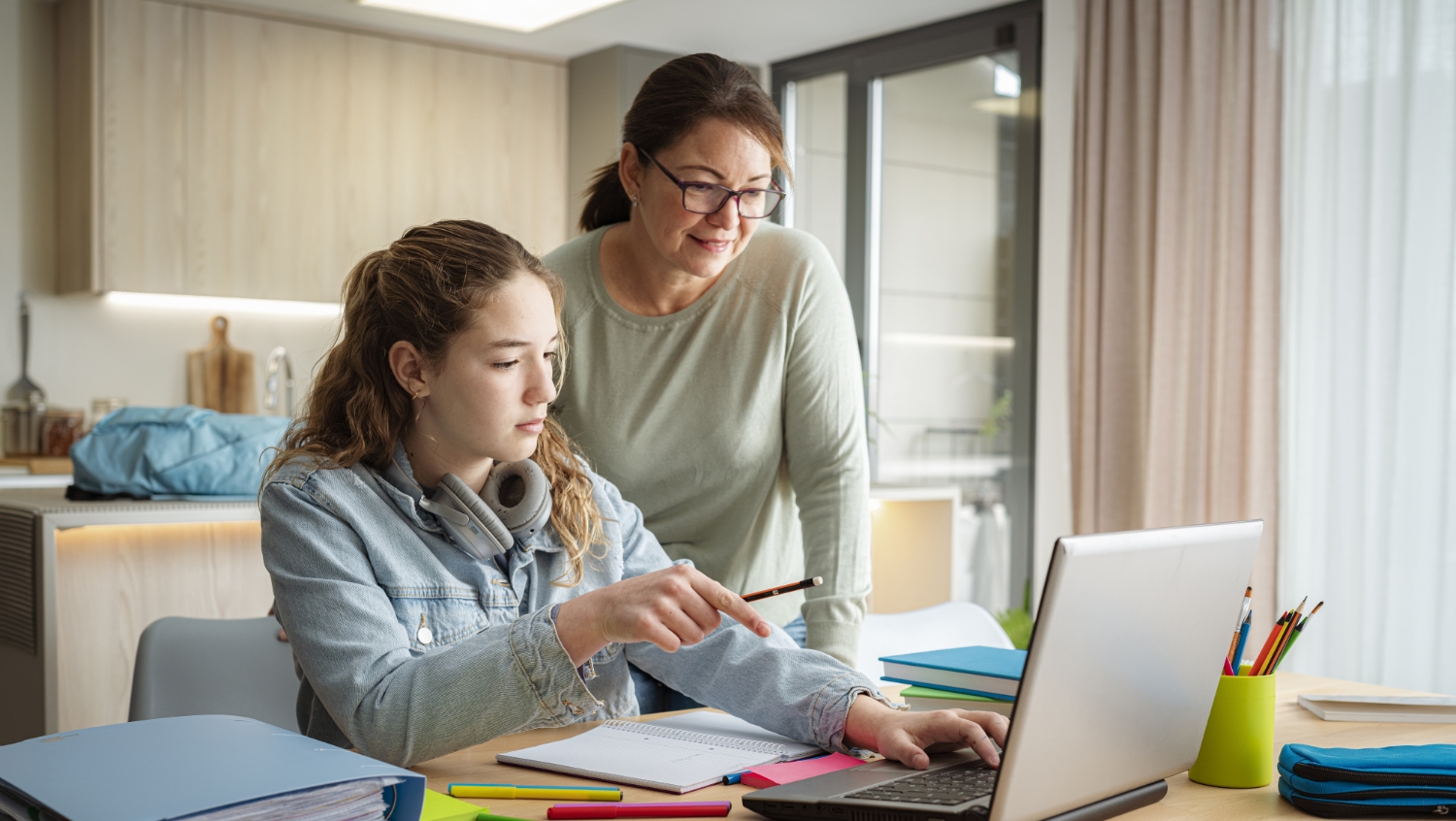Why short-term solutions work for student reintegration | Reintegration Series 2

Teaching and learning approaches are always evolving to meet students’ needs and make the most of new technology. Yet, despite education’s seemingly adaptive nature, reintegration into the classroom is often a complex, multifaceted process that can be highly stressful for everyone involved.
Whether a student is rejoining the classroom following illness, suspension, or because a special learning need has led to educational gaps, the traditional approach to reintegration typically entails extensive adjustments, assessments, and considerable paperwork.
What if we replaced prolonged interventions with short-term, adaptable learning solutions that enable students to return to school on their terms—efficiently and effectively?
What do short-term solutions encompass?
Short-term solutions are effective because they are tailored to each student’s unique needs, addressing specific knowledge gaps and emotional challenges over a particular period.
For students, this means a smoother and faster transition back into the classroom, where they can continue to be supported and go on to work on their academic and career goals.
Teachers, too, benefit from a simplified process. They become more agile and responsive in an environment where an increasing number of students face educational challenges. Breaking the cycle of disengagement early helps prevent escalating problems.
The anxiety of unstructured time
The two-week break from school marks a departure from the structured routines many students rely on. Without the predictability of a school day, students can feel anxious and struggle to readjust to the routine. Changes in when and what they eat, sleep, and work can leave them feeling disoriented. How can we help them feel more settled as they return to school in January and build a sense of stability and predictability after the disruption of the holidays?
Why short-term, adaptive solutions lead to long-term reintegration success
1. The power of portability
One key reason reintegration can be so challenging is the rigid structure of traditional learning environments. Students often feel they must fit into a pre-set timeline, even if they’re not ready to return to a physical environment full-time. This can result in gaps in learning, heightened anxiety, and, ultimately, an unsuccessful attempt at reintegration.
The portability of solutions like Academy21 can significantly improve the flexibility traditional schools lack. As a fully online alternative provision specialist, Academy21’s short-term solutions allow students to learn from anywhere, whether at home, in a hospital, or temporarily living in a different area. Learning isn’t confined to a physical classroom, making education more adaptable to the student’s circumstances.
It’s not just about where students access their classes from – but when they can access them. Aside from a bespoke timetable to ensure students can attend lessons while maintaining their other commitments, Academy21 also offers lesson recordings so students can learn at their own pace and in a way that fits into their lives—not the other way around.
This creates an environment where students can focus on learning and growth rather than playing catch-up. The portability of services like those Academy21 offers can also support a gradual reintegration to a physical site, as it is easier to scale time in physical and online classes up and down as needed.
2. Tailored educational delivery
The next challenge in reintegration is ensuring that the support students receive is tailored to their specific needs. A one-size-fits-all approach doesn’t work when it comes to helping students transition back into education, particularly if they are students with SEN.
Academy21 works with schools to design short, focused interventions that help students catch up or bridge gaps in their learning. These aren’t generic, cookie-cutter courses—they’re specifically crafted to meet the academic requirements of the student’s home school, ensuring alignment with the curriculum and making reintegration smoother.
This targeted approach means students don’t waste unnecessary time on areas they’ve mastered. Instead, they get the proper support in the right places at the right time—whether working on missed subjects or getting extra help with social and emotional readiness.
In addition, our approach is grounded in adaptive teaching—where lessons are dynamically adjusted based on the student’s progress. This is a core element in helping students feel included and confident in their return, as the lessons they engage with are built around their unique learning needs.
3. Flexibility in deploying resources
In a perfect world, every student would progress without any disruptions. But reality doesn’t always align with that ideal. Schools are dealing with diverse student needs: some students need a short burst of support before reintegration, others need ongoing help, and some require more intensive care for specific challenges.
Academy21’s flexible commissioning options allow schools to provide the right level of support at the right time. Schools don’t need to commit to long-term contracts or programmes. Instead, they can opt for a modular approach, selecting the duration and level of support that best suits each student’s needs. This flexibility is a game-changer for schools balancing resources and budget constraints.
Additionally, Academy21’s approach makes phased returns easier. We allow students to gradually transition between online learning and on-site lessons via a flexible hybrid learning model, giving them the time and space they need to adapt. This tailored flexibility ensures that schools can effectively reintegrate students without overwhelming them.
4. Supporting students holistically
Effective reintegration doesn’t just happen in the classroom. It’s about the whole student—their emotional readiness, social skills, and ability to engage with peers. Academy21 provides not just academic support but also focuses on the student’s wellbeing, ensuring they’re emotionally and socially prepared for their return to school.
Our support includes regular feedback loops with teachers, continuous assessments to track progress, and a comprehensive range of Enhanced Services that help students rebuild confidence and social connections. By taking a holistic approach, we ensure students feel supported in all areas of their lives, not just academically, making their return to the classroom a positive, empowering experience.

Our reintegration offer
1. Enrolment and inductions
At enrolment, schools can select from various live lesson times, subject levels, and flexible learning packages that best suit the student’s needs. We ensure that key information regarding the student’s prior learning and any additional needs are shared with our teachers, allowing them to adapt their delivery style accordingly.
Inductions are crucial in helping students feel comfortable and ready for a reset. Through induction sessions, students and parents can learn about our learning platform, meet our supportive teachers, and get their questions answered.
2. Adaptive teaching and relational approaches
Our team of fully qualified teachers and experts guides every pupil’s learning experience at Academy21. Our teachers take a relational approach to teaching, building trust with students by understanding their unique learning needs and goals. They employ interactive tools such as quizzes, polling, and chat pods to make lessons more engaging, providing regular feedback and support to build confidence.
3. Additional support for reintegration
For students requiring additional, specialised support, we offer tailored courses like mentoring, anxiety management, and social skills as part of our Enhanced Services offer. These services help address challenges that may hinder reintegration, ensuring that students are academically, socially and emotionally prepared for the transition.
A more effective way to reintegrate students
Short-term, adaptable learning solutions enable students to stay engaged with their education while transitioning back to the classroom at a pace that suits them. Schools, in turn, can provide timely support without being constrained by rigid contracts and generic interventions that may not meet every learner’s needs.
At Academy21, we work alongside hundreds of schools across the UK to simplify their students’ reintegration into the physical classroom. We offer structured yet flexible academic and wellbeing support that helps students rebuild confidence and maintain progress—ensuring no learner is left behind.
This blog is part of a three-blog series where our Headteacher, Alessandro Capozzi, delves into student reintegration into mainstream education and how schools can improve this process for their students. Read the part three here.
Written by
Alessandro Capozzi
Posted on
05/03/2025
Updated on
25/03/2025
Topic
Student successPost type
Blog


